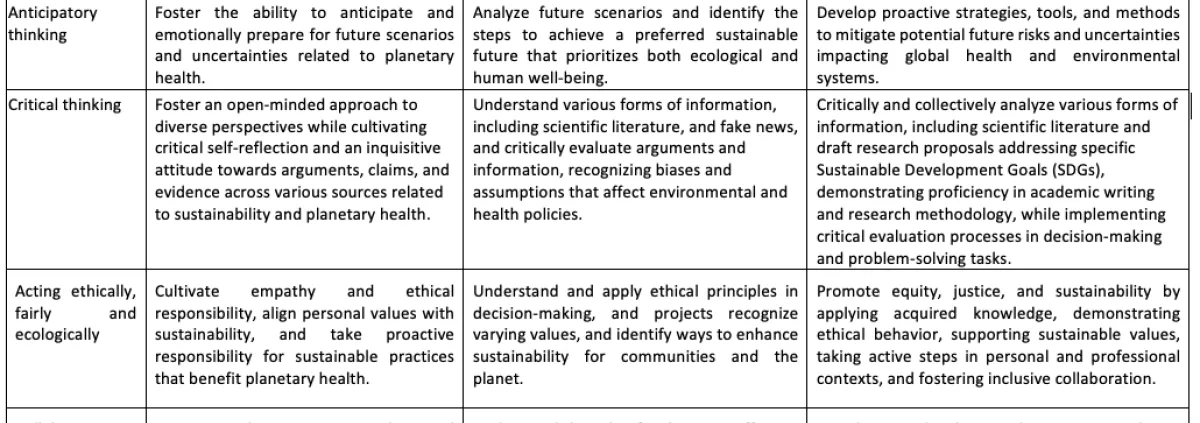The urgency of addressing global challenges such as climate change, biodiversity loss, and social inequalities requires transformative approaches in education. Achieving Sustainable Development Goals, which emphasises education for sustainable development, global citizenship and planetary health, demands innovative methods to prepare learners for these complex and interconnected issues. Co-design offers a promising pathway, creating educational programmes that are both participatory and deeply relevant to the needs of society and the planet.
How, can the co-design process be harnassed to develop a Master’s programme centered on Sustainable Development Goals for planetary health?
The instructional team at the Learning Planet Institute (LPI) has chosen to adopt this co-design methodology, guided by a policy outlining the ideals, principles, and governance structures that determine who should participate in the co-design activity (Zamenopoulos and Alexiou, 2018, p. 22). In this context, the co-design team included individuals from diverse LPI structures, ranging from directors to students. Our team developed various construction scenarios through workshops. The first workshop focused on analysing the current situation in its context; the second on the profile of the students, comparing it with other Master’s programmes on SDGs in general; the third on competencies related to the SDGs; and the fourth on what it means to create a Master’s program on SDG 4.7. Focusing on the third workshop, which centered on competencies, we recognised its pivotal role in shaping the Master’s programme.
Our competency framework is built on a robust foundation, integrating insights from several influential sources. We drew upon Rieckmann's sustainability competencies, UNESCO's educational guidelines, and the GreenComp, the European sustainability competence framework, alongside the concept of 21st-century skills. By synthesising and refining elements from these frameworks, we developed a comprehensive set of 18 competencies designed to prepare students for the intricate challenges of sustainability and the demands of the future.
This integrated approach ensures that the Master’s programme equips students not only with theoretical knowledge but also with the practical skills and critical thinking abilities needed to drive transformative change in their communities and beyond.
Would you like to join us on this journey? Whether as a student eager to learn, a member of the pedagogical committee shaping the curriculum, a partner supporting our mission, or a funder investing in the future of inclusive and sustainable education, your participation can help bring this transformative vision to life. Will you be part of this collaborative effort that empowers changemakers for a sustainable and healthier planet?
Maria Angelica Mejia Caceres, Amodsen Chotia, Raphael Costambeys-kempczynsk


Valeria NAPOLI Ulrike PISIOTIS
Excellent learning
Please log in or sign up to comment.